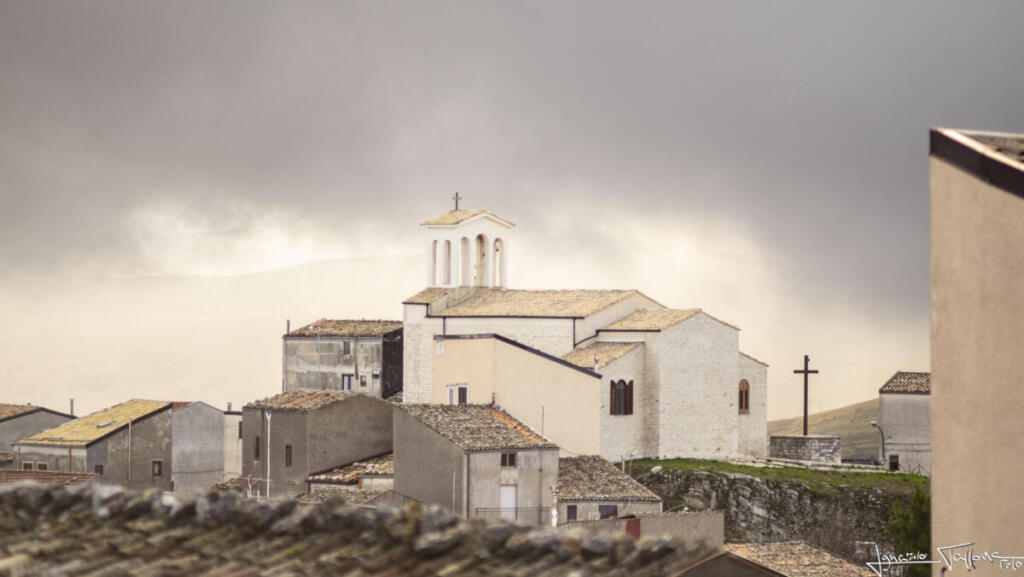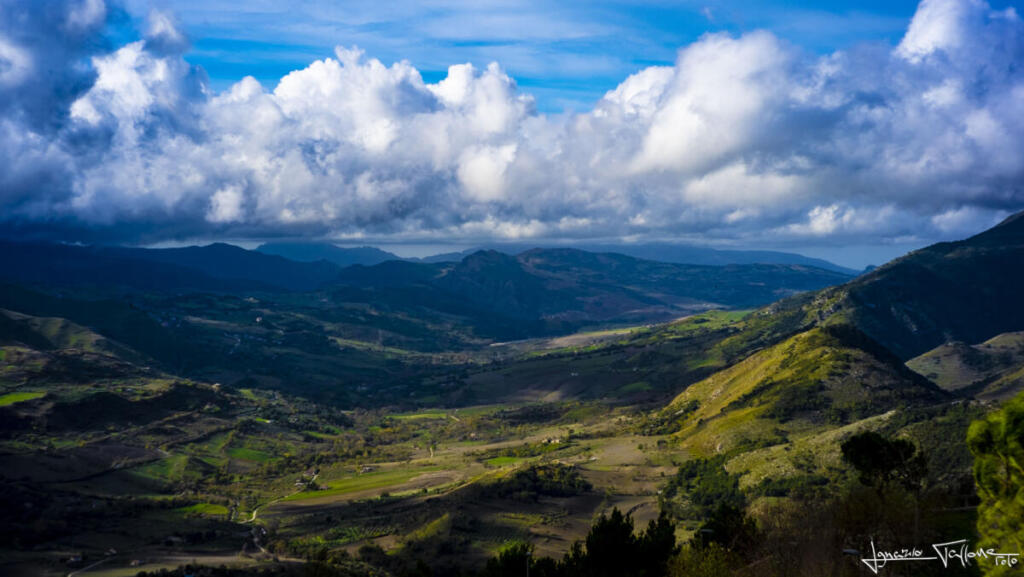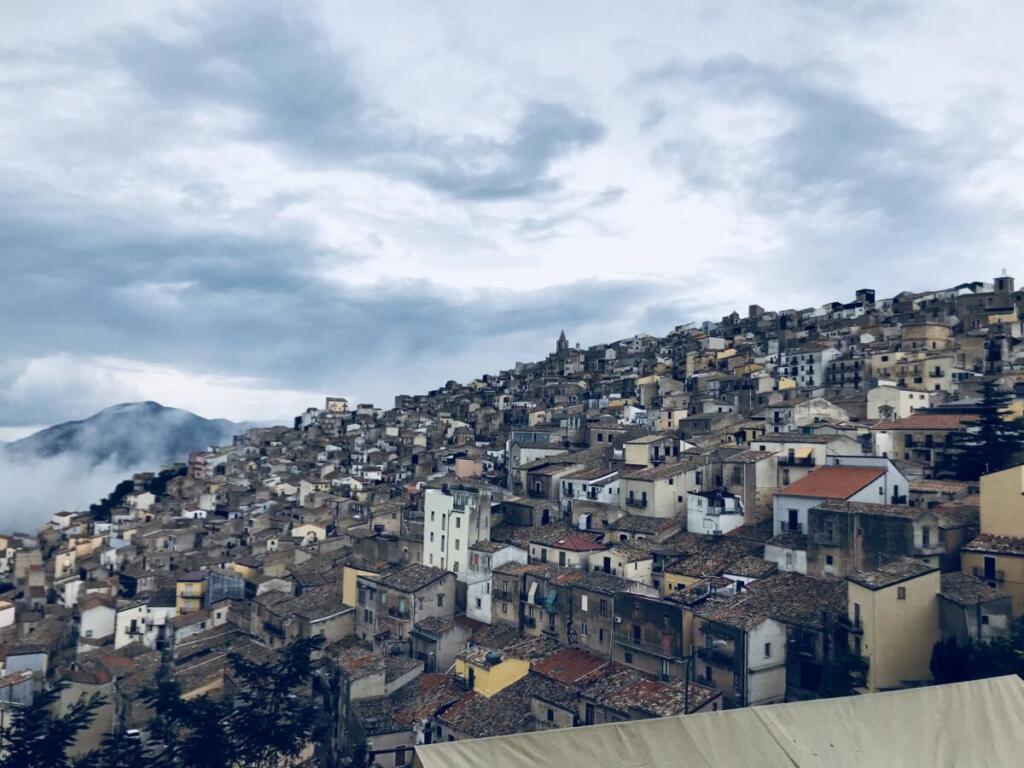Prizzi is our small centre of the world, an ancient village, a maze of small houses clinging to the ancient Montagna dei Fuochi.(Mountain of Fire).
A place where the few survivors of the extermination of the city of Hippana by the Roman army in 258 BC found shelter
Even today the "twin" mountain, the Montagna dei Cavalli (Mountain of Horses), reminds us of our origins.
A people of merchants and philosophers, a commercial hub for the Carthaginian allies, who were welcomed into the agora, led to the acropolis and finally to the Greek theatre overlooking the Sosio Valley.
Prizzi pays for our efforts with magnificent sunsets and a unique panorama of its kind.
Getting lost in the maze of its small "vanedde" (curved and narrow streets) and being surprised with glimpses of green forests framed within the walls of the houses is always surprising.
In recent years we thought this was the greatest treasure of our small village.
However, over time we realized that the real treasure lies in the hearts of the people who inhabit these mountains.
The ability to welcome, indiscriminately, anyone despite prejudices. The first crooked and curious look at the stranger who after a few minutes finds himself surrounded by people who are joking. That one offers a coffee, this one prepares a lunch, a dinner, that one gives a room for the night.
The next morning the stranger is a "prizzitano"!
He sees the same people in the same bar who seem never to have gone away. Those who were not present the day before also greet him because they have now been meticulously informed of the news.
Social distancing has undoubtedly drastically reduced what remains of human relationships in large cities, but has never managed to untie a community that thrives on daily social relationships.
In compliance with the rules, people remained united and perhaps became aware of this now very rare invisible treasure. This way of being is one of the fuels of productive and economic recovery.
This is also stated by an American psychiatrist from Dallas who years ago during a trip to Sicily found himself passing by Prizzi. He was offered a dinner, then a room to spend the night, then stayed a few more days.
Many now knew him and stopped to talk to him, showed him the beauty of our land. During Prizzi's Easter characterized by the ancient pagan tradition of the "Ballo dei Diavoli", he was allowed to participate in the Easter celebration carrying the statue of the saint on his shoulder.
He was a key figure in the gestures of everyday life of the agro-pastoral tradition. In Prizzi we have spontaneous experiential tourism developed from instinct and the desire to share.
Today Dave Atkinson has been awarded honorary citizenship for helping to increase forms of social integration, having started the Street Art project with Dallas artists called "Dallas in Prizzi".
Dave bought a house in Prizzi. He walks with us in a slow, short but continuous step.
The unmistakable authenticity of our territory has for years attracted pilgrims and walkers along ancient paths, commercial routes and military routes from remote eras.
Today these roads that seem to have not noticed the passage of the centuries, translate into our era as tourist itineraries, Francigena routes for pilgrims, paths to be covered on foot, by bike or on horseback.
A territory, we could say unexplored, which has preserved unique characteristics elsewhere forgotten for centuries. Time passes slowly, every step is thought of, every action and every gesture has a time to respect.
The patience to see a product of the earth grow.
There is no shortage of examples of unwanted creative recycling.
What is broken is repaired or reused for a different purpose: if it is left over it is preserved. Perhaps these people would really have much to teach future generations that they will have to deal with the consequences of years of waste and pollution.
The new social dynamics feed on sustainable tourism which brings an ever-increasing number of walking tourists from all over the world to our mountains. Today we live in a new context, one never experienced before.
On the one hand there are faces carved by the wind of the Sicilian countryside that with their cloth caps and their humility teach us every day to understand our past to know every nuance of ancient crafts, local products, customs, traditions, ways of saying that they express ways of thinking and seeing the world.
On the other hand, there are wayfarers with different cultures, languages and traditions.
If once living in a small village was like living in a closed box, now Prizzi allows us to speak English, French and Spanish opening up to new ideas, triggering unique cultural exchanges and new friendships.
After traveling around the world, having studied and worked abroad, we decided to believe it and return to our land, to make a bridge between the gentleman with the cap and the foreign visitor. Between the time of the mule and that of the electric car.
In Prizzi past and present mix and learn from each other.
We like to think that our territory is a beautiful picture that until now could only be observed in the moment captured by the painter.
We make that scene real.
We make it possible to see a magnificent territory in movement with workshops on ancient crafts and local products, experiential tourism and trekking.
All within that splendid setting that we cannot help but defend and love unconditionally.
In an industrialized, computerized, digitized world, we want to smell the wet earth.
A land that we no longer want to wet with tears but with the sweat of our foreheads.







Follow us